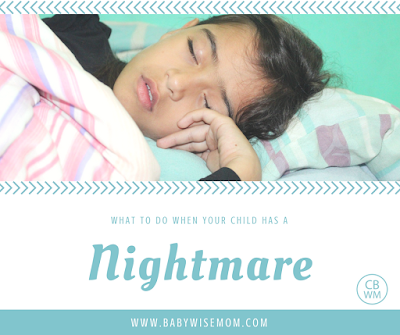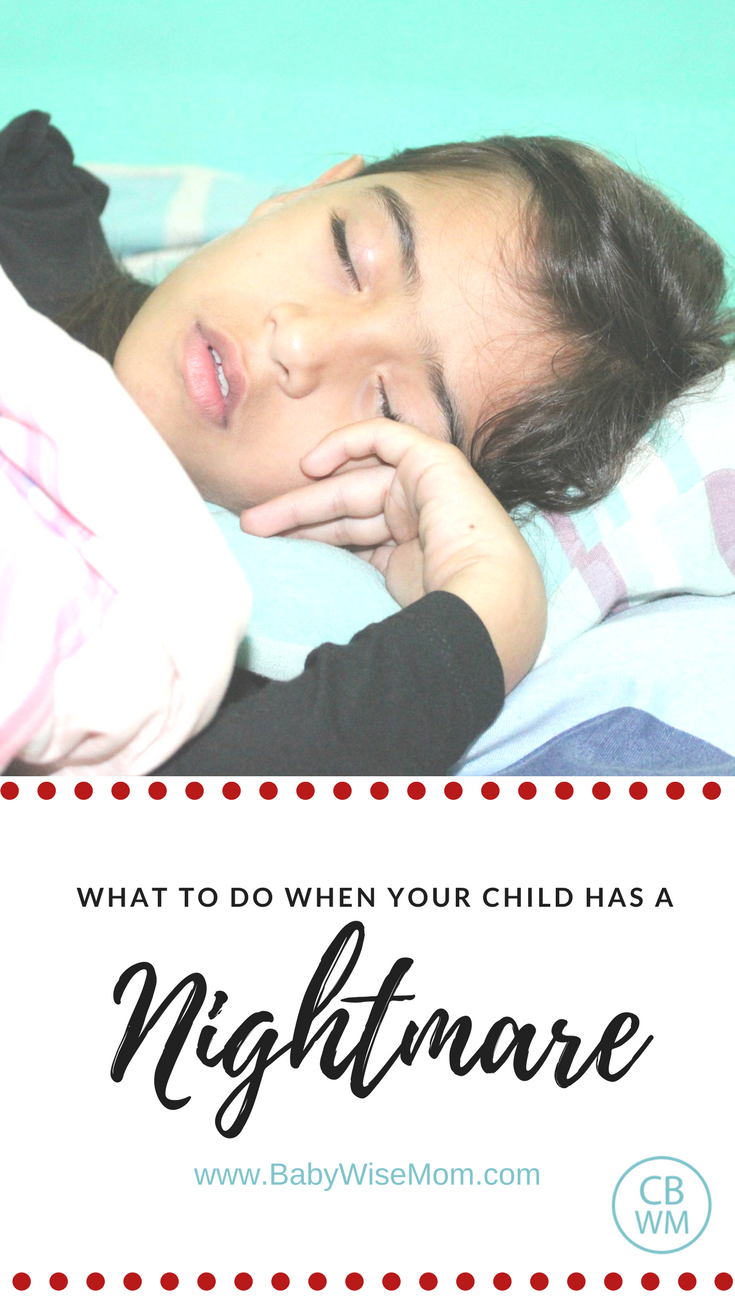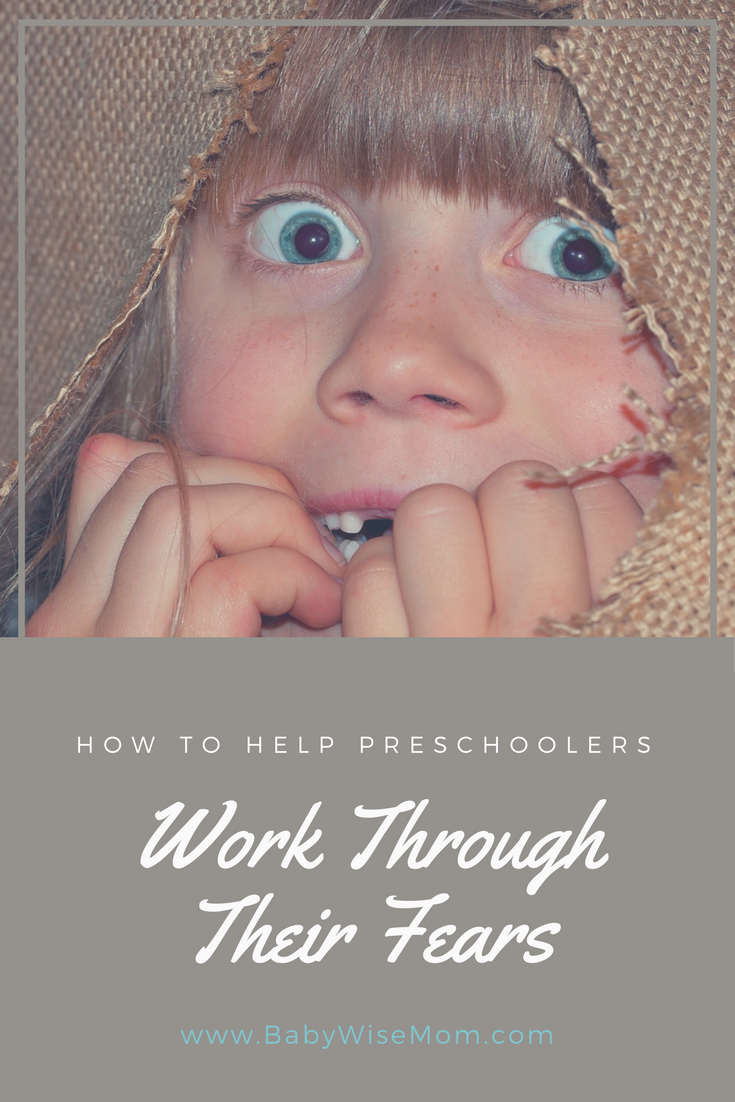“Mommy, will you pray for me to not have any scary dreams tonight?” Sometimes it feels like all we can do as parents when it comes to nightmares and night terrors is pray. They seem very much out of our control. While I do not in any way discount the power of prayer, there are other things we can also do to set our children up for sweet dreams instead of scary dreams.
We have all had nightmares and know how unsettling they can be. We want to do everything we can to help our children work through the fear and get back to sleeping well. Here are some ideas on how to help your child to stop having nightmares.
Post Contents
- 1-Make Sure Your Child Has Health Sleep Habits
- 2-Make Sure Your Child is not Too Hot or Too Cold
- 3-Do Not Allow Your Child To Watch or Read Scary Things
- 4-Watch For Patterns
- 5-Encourage Your Child To Talk About the Dream
- 6-Empathize With Your Child
- 7-Find Ways To Empower Your Child
- 8-Be Wary of New Habits
- Conclusion
- Related Posts:
1-Make Sure Your Child Has Health Sleep Habits
A huge key to avoiding nightmares is to have a regular sleep schedule. Have a regular bedtime that is early enough for your child. Get your child up at the same time each day. These sleep habits you worked so hard to establish are still helpful and vital in the toddler, preschool, and child ages.
In these healthy sleep habits, have a regular sleep routine. Find what is calming for our child. Is a bath at night good? Have snuggle time and a bedtime story. Help your child wind down.
See: Preschoolers and Bedtime, Consistent Bedtime, Bedtime, Strategies for Making Bedtime Smoother
2-Make Sure Your Child is not Too Hot or Too Cold
When Brayden was a toddler, he started having some bad dreams. This was during the summer and I had a fan in the room blowing to help keep things cooled down. My husband had a lot of bad dreams as a child, and remembered that when he was hot or had air blowing right on him, he would have bad dreams. We needed to keep it cooled, but also not air blowing on him. So we faced the fan away from him. So analyze the temperature of the room.
3-Do Not Allow Your Child To Watch or Read Scary Things
And judge scary by what is scary to your child. My husband was once terrified of the movie The Wizard of Oz. Just because you don’t see it as scary doesn’t mean your child won’t see it as scary.
4-Watch For Patterns
When your child has a nightmare, take note of the previous day’s events. What time was bedtime? Is your child getting enough sleep? What was the temperature like? Did your child have some sort of stress or trauma the day before? Was there a new situation? Did your child watch something scary the day before?
Our brain processes life while we sleep. During REM sleep, your brain categorizes what it learned that day. I personally find that when I am stressed out, I have bad dreams about my stress point that night.
You also want to watch for patterns on what and when your child ate close to bedtime. The food and you eat can impact how you sleep, and if you aren’t sleeping well, it can lead to nightmares.
5-Encourage Your Child To Talk About the Dream
When my child has a bad dream, I hold them close and have them tell me about it. This helps them process and get it all out. I don’t belabor it. I don’t force them if they don’t want to say anything. I ask if they want to tell me about it and listen when they describe the dream. You may find it helpful to talk about it more in the daytime when things are bright. I don’t brush it off and tell them it was just a dream. I do reassure them it wasn’t real, it was only a dream, but I empathize without it made them feel. Hey, I have woken up angry at my husband enough times because of a dream I had the night before. I know those post-dream emotions are real.
6-Empathize With Your Child
I let my children know that I don’t like it when I have a bad dream, either. I let them know that I have bad dreams sometimes too, it isn’t fun, but I am okay.
7-Find Ways To Empower Your Child
My children love to have a picture of Jesus right by their bed to help them feel safe when they are scared. They love stuffed animals. Brinley recently had a couple of weeks where we had to line her head with stuffed animals at night to help protect her brain from bad dreams.
Sometimes a night light can help your child feel less scared. I don’t like night lights in the room regularly, but I will put one in during times of need.
Some parents find success in mixing up some glitter and water, or just water, in a squirt bottle and spraying the bed and room to send those bad dreams away.
Teach your child to think of happy things. What nice songs could she sing? What fun memories could she think about? What future event could she look forward to? The mind is a powerful thing, and if you can get it on the side of “We are okay to go to sleep,” it is a huge step in the right direction.
My children turn to prayer, also.
8-Be Wary of New Habits
I don’t want to discourage you from comforting your child in any way after a bad dream. Just always be mindful that anything you do after a bad dream might need to be done every day until you break the habit. When we did the stuffed animals around the head for Brinley, we had to do that for a couple of weeks. We were able to wean off of it after some time. Just be willing to continue anything you do long-term or at least for a few weeks AND be willing to work to break that habit if you don’t want it around forever.
Conclusion
Your child will most likely have some bad dreams here and there throughout childhood. When it happens, it is normal for your child to be scared and nervous to face sleep again. These tips can help you set your child up to avoid nightmares as much as possible, help your child through the nightmare when it happens, and be able to face those nightmares and conquer them after the fact.
Related Posts:



